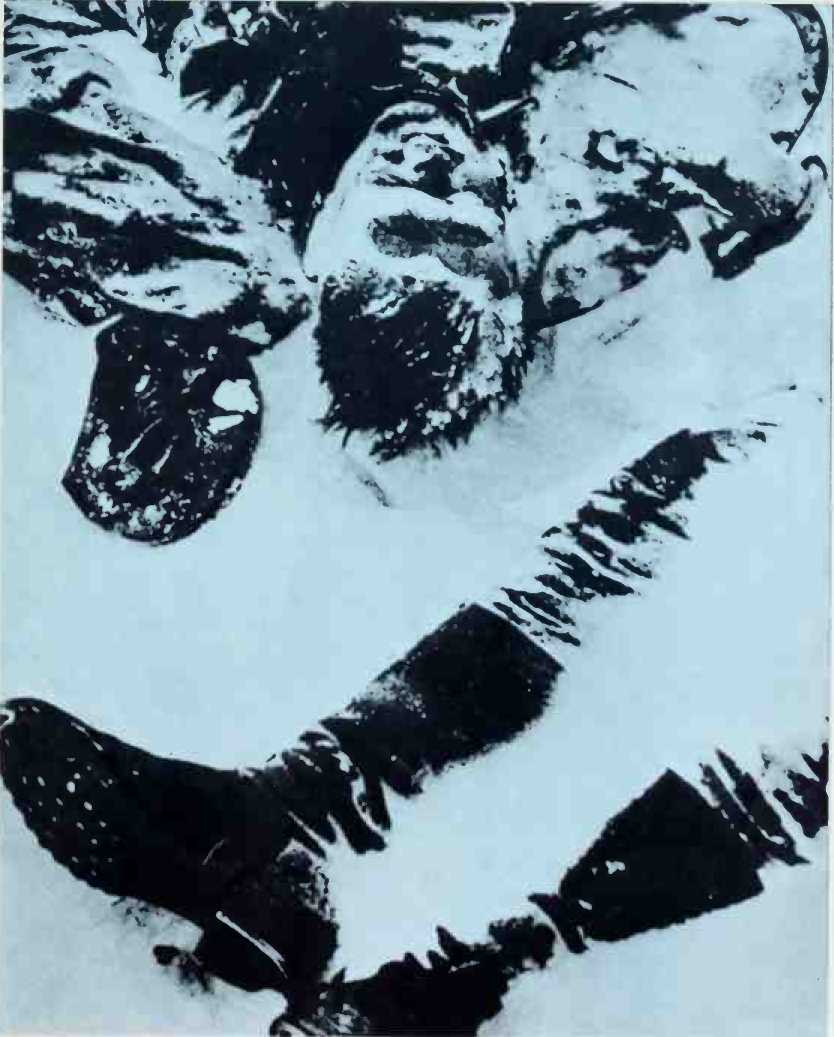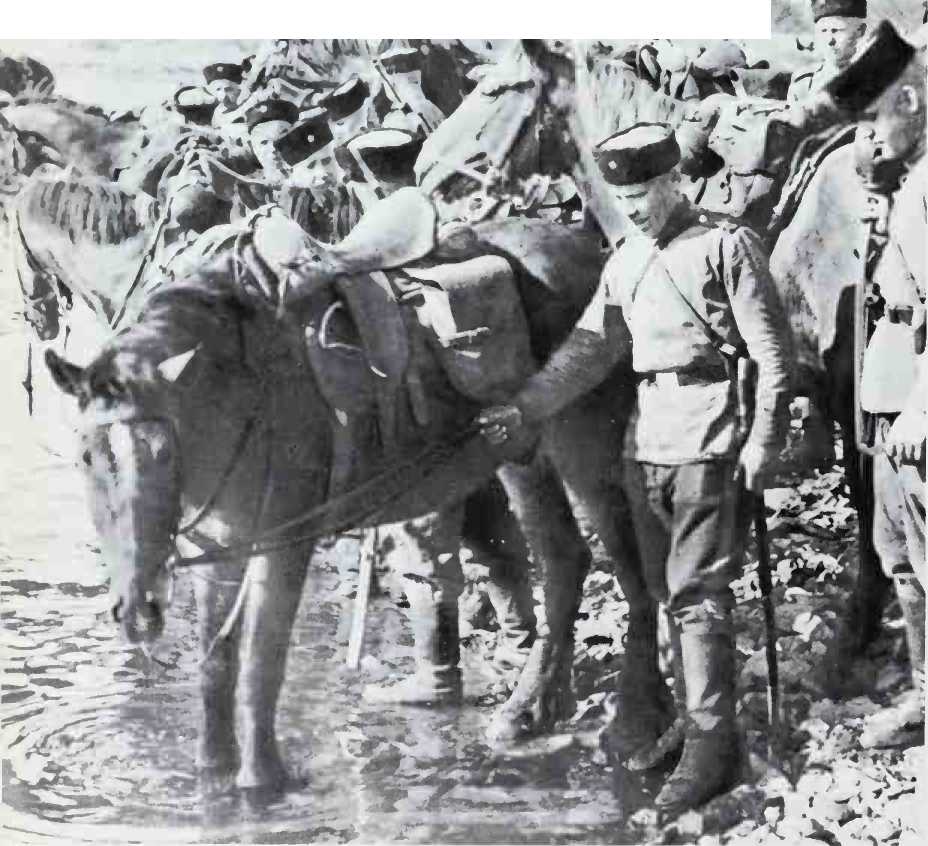On January 17, when it became clear that Rokossovsky’s battering-ram would destroy his 2nd Army, Reinhardt had asked permission to pull back the 4th Army from its 140-mile wide front (Nowogrod-Augustow-Goldap) to a line Ortelsburg-Lotzen - Masurian Lakes canal. This would save three divisions, which would make up for the loss of the "Grossdeutsch-land” Panzer Corps and stave off a break-through. Quoting his "five years experience of warfare”. Hitler refused this sensible request; Reinhardt could not bring himself to remind Hitler of the sinister experience of Vitebsk,.
Three days later, when the German 2nd Army positions had been breached and Chernyakhovsky had been successful at Tilsit on the Inster, Lieutenant-General Heidkamper, chief-of-staff of Army Group "Centre”, noted in his diary; "To keep the 4th Army in its present exposed position now appears grotesque. At 2030 hours the C.-in-C. (Reinhardt) again puts before the Fiihrer the reasons for its immediate withdrawal. 'Mein Fiihrer’, he began, 'in my anxiety for the safety of East Prussia, I venture again to turn to you. According to my appreciation of the situation, we shall tomorrow face an attack on the whole of East Prussia. Examination of a captured map reveals that the 5th Guards Tank Army, with four tank corps, is to make for Danzig. The strength of our 2nd Army is so depleted that we cannot withstand this attack. The second strategic danger is in the 3rd Panzerarmee, which the enemy has broken into. If the Guards Tank Army is able to force its way through we shall be caught in the rear: here we have no resources at all.’”
There followed long exchanges between Reinhardt and Hitler. The latter, never short of arguments, advised Reinhardt to use the Volkssturm militia against the Soviet tanks and told him that the 4th Panzer Division had been withdrawn from Kurland, loaded on five liners, and was expected to reach him very soon. This would be followed very shortly by 20 infantry battalions from Denmark. It was for these reasons that he opposed Reinhardt’s request, and when at mid-day on January 21 he finally agreed, the fate of Army Group "Centre” had been sealed.
By remaining in its allotted positions on January i7, 4th Army suffered the inevitable encirclement, with 350,000 men trapped around the strongpoint of Lotzen, where supplies were reckoned to be enough for one division for 70 days. The commander. General Hossbach, realising the impossibility of his position, tried to fight his way out, down towards the Vistula. He was thus knowingly disobeying O. K.H.’s orders, but he had the approval of Colonel-General Reinhardt, who saw in this a chance of saving the 3rd Panzerarmee as well.
Holding off Chernyakhovsky on the line Sensburg - Rastenburg - Friedland - left bank of the Pregel, Hossbach, after 125 miles of forced marches in five days through snowstorms, nevertheless failed to get to Elbing before the Soviet 5th Guards Tank Army. The latter had reached the shore of the Frisches Haff near the little town of Tolkemit on
< < >1 German officer, clad in a snow-suit, finds it heavy going in the winter snows of 1944-45.
V The cold took a terrible toll of the exhausted German forces.

V Cossack cavalry slop to water their mounts. . .

January 27 and had cut the last link between East Prussia and the rest of the Reich. Further south, XXVI and VI Corps (Generals Matzky and Grossmann) had attacked the previous night and got as far as Preussisch-Holland, 12 miles south of Elhing.
On the one hand Rokossovsky was thus able to avoid the opposition intended for him and consequently to reinforce his strength. On the other the secret evacuation of East Prussia by Hossbach, with the connivance of Reinhardt, was denounced to Hitler by Erich Koch, the Gauleiter of the province. The Fiihrer dreaded the setting up in Konigsberg of a government of "Free Germany” once the Russians were in the town. It was here that Frederick I, the Elector of Brandenburg, had been crowned in 1701. It therefore had to be held at any price, even at the cost of 28 divisions.
And so Reinhardt was relieved by Rendulic on January 27. Three days later Hossbach was ordered to hand over command of the 4th Army to General Friedrich-Wilhelm Muller. Stalin had, of course, no intention of setting up a Free German Government (even one devoted to him and presided over by General von Seydlitz-Kurzbach) in Konigsberg, which had been allotted to the Soviet Union by the Teheran Conference, and which he was going to rename Kaliningrad. Was this just mistrust on Stalin’s part, or did he think it best to leave things as they were?




 World History
World History









